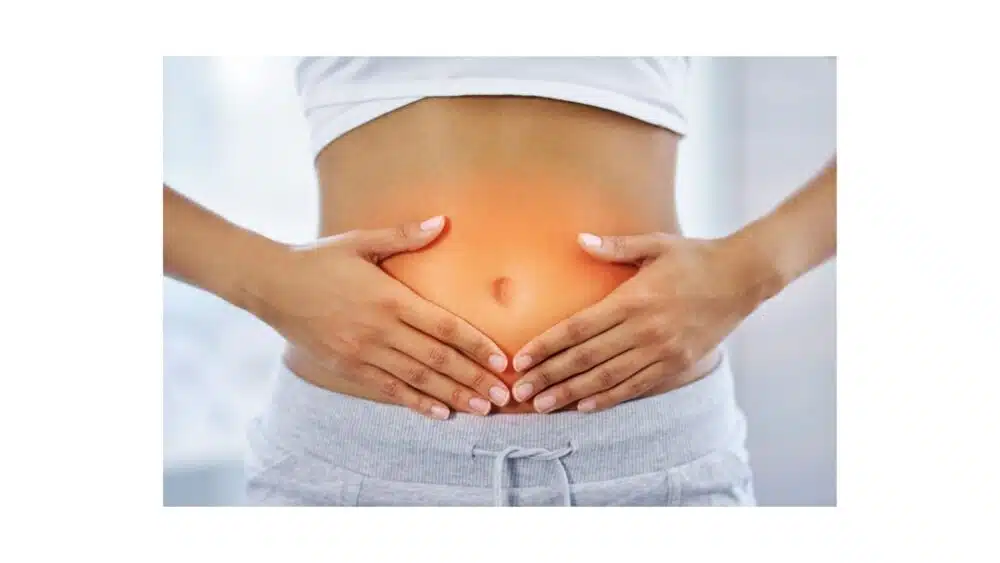Gut health, it’s this sexy term that is thrown around in our culture today but what does this term truly mean? Well, I’m going to share with you my take on exactly this topic and my perspective on why gut health is EVERYTHING when it comes to your overall wellness. I will also share my take on women and gut health and its impact on periods health!
I first want to share with you my journey into becoming a major advocate for healing your gut integrity. It honestly began after I had my second daughter, I was breastfeeding her and was back to work full-time at the pharmacy I managed. The conditions for me to pump in were suboptimal and the stress level in the pharmacy was off the charts. Maybe some of you reading this can relate, to say the least, it was very difficult for me to pump in peace!
When my daughter was only eight weeks old, I became ill with mastitis severe enough to land me in the hospital and placed on IV antibiotics. My mastitis would come back on and off after being released from the hospital, so I was then placed on oral antibiotics over the course of a couple of months. This is when my gut health took a toll (for those who don’t know this, antibiotics are known to wipe out good gut bacteria and lead to issues in your stomach and intestines).
I began to dive into functional medicine and functional nutrition to absorb as much as I could about the importance of a healthy gut microbiome and women and gut health. It took several months of healing my body internally, but I was finally free from the bloating, brain fog, and oddly enough vertigo that my body had been enduring.
Now, let’s get into the juicy stuff right!? I consider your gut your first brain and here’s why. Your gut has its own nervous system called the enteric nervous system and it’s developed first in the fetus prior to the nervous system associated with the brain. In addition, there are nine nerves that connect from your gut to your brain, but only one connects from your brain to your gut!
Some other incredible details about that tummy…70-80% of your immune system surrounds your outer stomach lining, 95% of your serotonin (your feel-good hormone) is produced here, and it regulates estrogen ladies! So, women and gut health are important! And your gut health does affect other functions including your periods health!
Women and Gut Health Affecting Periods
Let’s take this a little further on women and gut health, ladies, do you suffer from period cramps or PMS symptoms like; bloating, tender breasts, total “b” mode, or acne? If you said yes to any of these, I’ve got you covered! As you just read, your good gut buddies regulate and eliminate excess estrogen in the body (that’s part of the reason why it’s important to have a daily bowel movement). If you have an imbalance of gut bacteria where the bad outweighs the good, then there’s an increased risk of establishing elevated estrogen levels (hence important to know the significance of gut health and women thereby impacting periods). This is because your gut actually has specific microbes that break down estrogen.
It’s been reported that cramps and heavy bleeding in periods were linked to almost nine days of lost productivity for a woman every year! That leads to roughly $4,333 of indirect cost per woman per year! Talk about gender disparities! We’ve been fed a lie that we’re meant to suffer each month just because we’re female. I’m here to tell you it doesn’t have to be this way and just because something is labeled as common, we don’t have to accept it as normal. PMS and period issues are common, but sister, it doesn’t have to be normal anymore! It’s time for you to gain confidence in your body again and reclaim that intuitive nature that you may be suppressing or feel as though it is lost. It all starts with body literacy and you getting committed to truly putting yourself first!
So, how do you begin to tip the scales in your favor? Let me share with you a few of my secrets on healing your gut and owning your cycle!
Perform a kitchen audit and remove inflammatory foods, every woman should do that for their gut health; my go-to items to remove are:
Sugar
This is THE worst culprit of them all because it is highly addictive, feeds bad gut bacteria, and destroys the lining of your intestines causing a leaky gut. Even the “zero” calorie sweeteners need to go because your body doesn’t know how to process these synthetic sugars which leads to a leaky gut amongst other issues as well. Zero-sugar examples are aspartame, saccharin, and sucralose.
Hydrogenated oils
These are things like canola oil, vegetable oil, sunflower oil, and corn oil. The issue with these oils is that they are truly trans-fats and actually bind to the outer layer of your cells causing a break in their natural composition. This damages the cells and causes issues with intestinal inflammation leading to a leaky gut.
Gluten
These are bread, pasta, cereal, crackers, cookies…truly the list goes on! This causes gut and intestinal inflammation along with a leaky gut as well. Gluten is the primary offender to those who suffer from celiac disease and it’s important to read labels when trying to avoid gluten. Some things to look for are starch, hydrolyzed vegetable protein, and dextrin.
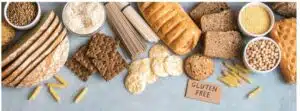
Dairy
This has gotten a bad rap, but it’s one of those food sources that should be eliminated for a few weeks and reintroduced for three consecutive days in a row. Much of the dairy that’s consumed has added hormones and contains A1 protein which humans can’t digest. Specifically, to periods health, dairy, irrespective of gut health, is associated with causing period cramps to worsen.
My recommendation is to do this kitchen audit on one meal a day for one week, then move on to the next meal you want to audit. The goal is to remove these inflammatory “food” sources entirely from one meal each week and determine how you feel. I also love having my clients journal how they’re feeling three days prior to initiating an audit and then continue journaling how they feel after they eat once they’ve made changes. It helps to stay on track and keep motivated!
My next piece of advice is to implement foods that allow for optimal gut health to replace the foods you’ve eliminated from your kitchen audit! Check out the list below:
Prebiotic food
These nourish the good gut bacteria and include garlic, artichoke hearts, and ground flaxseed.
Probiotic food
These allow for the multiplication of good gut buddies and include sauerkraut, kimchi, and miso.
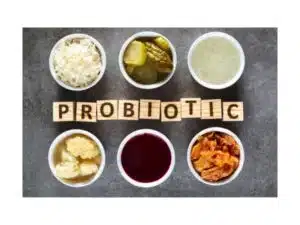
Anti-inflammatory foods
Organic berries, organic spinach, wild-caught salmon, bone broth, coconut milk, organic cage-free eggs, grass-fed beef, organic free-range chicken, and avocados!
Hydration
Drink plenty of water and instead of reaching for that cup of coffee first thing in the morning opt-in for a glass of freshly squeezed lemon water. This helps with not only gut health but regulating your adrenal function and liver function as well.
Some other things to consider are eating seasonally and shopping in the outer aisles of the grocery store. Seasonal eating optimizes your gut bacteria because you’re rotating the product every few months which changes up the microbiome in your belly. Shopping the outer aisles assures that you’re getting fresh produce and not any potential additives like you would if purchasing canned or boxed goods.
By implementing these few changes, women will begin to notice a major impact immediately on gut health for those who have tummy troubles and in a few months for those who suffer from periods problems and PMS. Something else to keep in mind is that you’re a woman of impact and you’ve only been blessed with one beautiful body, so treat her as your temple!
Interested in discovering more about hormonal imbalances? Check out my FREE Are your hormones happy personality quiz to learn more about working with your body to truly optimize your health!

Elisabeth Wygant
Related Posts
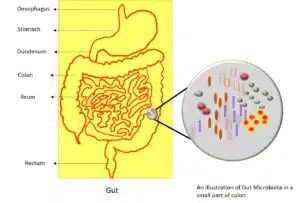

5:2 Fasting, Dry Fasting vs Wet Fasting – To Fast Or Not To Fast
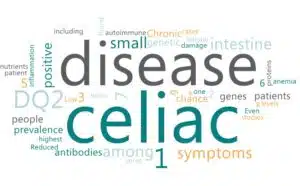
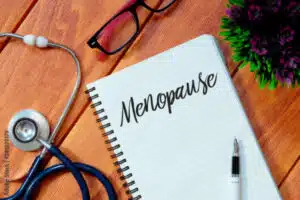
Enlighten Your Menopause – Symptoms And HRT by Menopause Doctor
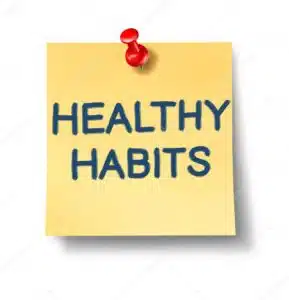
Creating Habits By Self-discipline For Better Health In Celiac


